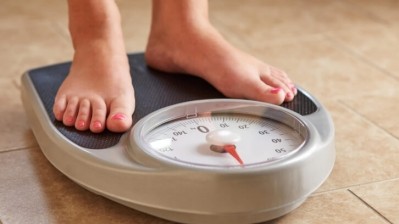Chr Hansen study supports efficacy of L. plantarum strain for gut health

Daily doses of Lactiplantibacillus plantarum Lpla33 of either 1 billion or 10 billion CFUs led to significant improvements in the IBS severity scoring system (IBS-SSS) total score after eight weeks, according to data from the prospective, randomized, double-blind, placebo-controlled, multi-center, and parallel-arm study.
“In the present study, L. plantarum Lpla33, at daily doses of 1 × 109 or 1 × 1010 CFU, reduced IBS-SSS by more than twice the magnitude of the placebo group after 56 d, thus achieving the primary outcome while surpassing a clinically meaningful response. Further, the higher dose L. plantarum group demonstrated a greater effect size than the lower dose L. plantarum group,” reported scientists from Chr. Hansen and Vedic Lifesciences in the World Journal of Gastroenterology.
Chr Hansen announced in a LinkedIn post recently that the strain will be branded CLEPIUS and is the “newest addition to our probiotic family”.
Study details
The new study, led by Chr Hansen’s Dr Christopher Martoni, included 307 adults aged between 18 and 70 with IBS-D, a type of Irritable Bowel Syndrome in which abdominal pain or bloating symptoms happen along with diarrhea. The participants were randomly assigned to one of three groups: Placebo, or L. plantarum Lpla33 at one billion or 10 billion CFUS for eight weeks.
“The study is unique in its dose-ranging design in a well-powered study across 12 clinical sites,” wrote the researchers.
The primary outcome was a change in IBS-SSS total score at the end of the intervention, while secondary and exploratory outcomes included abdominal pain severity, IBS related quality of life, perceived stress, and stool and microbial profile.
Results showed that both L. plantarum experienced significant reductions in IBS-SSS total scores after both 28 and 56 days, compared to placebo. Specifically, the IBS-SSS score decreased by 128 and 158 in the 1 billion and 10 billion CFU groups, compared to only 59 in the placebo group after 56 days.
“End-of-study IBS-SSS profiles were considered either in remission or mild (< 175) in 48.1% and 72.6% of participants in the L. plantarum [low dose] and L. plantarum [high dose] groups, respectively. as compared to 11.1% in the placebo group,” added Dr Martoni and his co-workers.
Improvements were also reported for both probiotic groups for abdominal pain severity, stool normalization, QoL, and perceived stress, compared to placebo.
Commenting on the potential mechanism(s) of action, the researchers noted that this may be linked to the production of beneficial short chain fatty acids (SCFAs). Another possibility is linked to bile acid metabolism because L. plantarum Lpla33 is reported to possess significant bile salt hydrolase activity. This could be important because both diarrhea and visceral hypersensitivity have been linked with decreased conversion of primary bile acids to secondary bile acids.
“Additionally, the ability of L. plantarum Lpla33 to modulate intestinal barrier function, inhibit key pathogens, and moderate inflammatory markers may have played a role in the observed effects,” they added.
“Going forward, multi-omics studies should play an important role in further understanding therapeutic mechanisms of probiotic and diet-based interventions in IBS-D.”
Source: World Journal of Gastroenterology
2023; 29(28): 4451-4465. DOI: 10.3748/wjg.v29.i28.4451
“Efficacy and dose response of Lactiplantibacillus plantarum in diarrhea-predominant irritable bowel syndrome”
Authors: C.J. Martoni et al.















